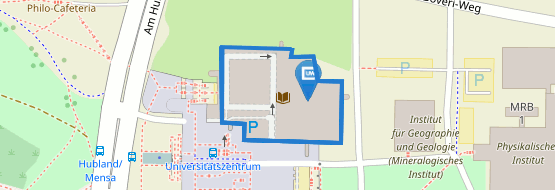Evaluating literature
You have probably already searched for literature and made a list of books and articles you would like to use for your work. Your list might also include some online sources. Here we show you how to assess the relevance and quality of your research results.
First check the relevance, i.e. how important the text is for your own work. You should briefly check the following:
- Table of contents
- Preface and/or introduction
- Closing remarks
- Abstract (for articles)
Based on these questions, consider the following:
- Do my search terms come up?
- What can I expect the text to bring to my work?
- Is the text suitable for my question?
- Does the text contain new information?
Use the following questions to check the quality of a text:
- Author
Who is the author? Are they an expert in the field? Have they published more on the subject? Is the author quoted in other works on the subject?
- Content
What is the book’s target audience? Is it a doctoral thesis or an academic reference book? Does it contain quotes and footnotes?
- Publisher
Is it from an academic publishing house? Does the publisher specialise in certain fields? Does the publisher follow a certain ideology?
- Year of publication and edition
How up-to-date is the book? In the case of translations: When was the original published? Is there a newer, revised edition?
- Bibliography
How up-to-date is the literature used? Are different research approaches taken into consideration?
- Review
Has it been reviewed in a professional journal?
- In the case of articles:
Has the article been published in an (academic) journal or in a public journal? What is the ratio of text/images/advertisements within the journal? Does the article have footnotes and a bibliography? Are details provided about the author and their academic qualifications? Is the journal peer-reviewed?
The criteria for evaluating printed texts can also be applied to texts found on the Internet.
For websites, check the following:
- Who/which institution runs the site?
Does the author or the organisation have an academic background?
To find out, please check the site’s legal notice (often found in the ‘About us’ or ‘Contact’ section).
- What is the site’s target audience?
- Does the author/the institution pursue a specific purpose? (political, ideological, commercial)
- Is the content verifiable?
Are there quotations and references or other information about sources?
- What links does the page contain? And which pages link there?
- How is the site structured? Is there a clear structure?
Give it a try
The criteria catalogue of the Constance University Library can be used to quickly and systematically evaluate websites.
Criteria catalogue of the Constance University Library (PDF, 232 KB, in German only)


